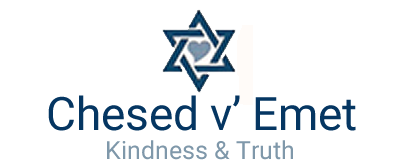Immediately following a death, the deceased should not, according to Tradition, be left unattended. A Shomer, or watchman, stays with the deceased from the time of death until the funeral and burial. It is appropriate for members of the family to stay with the deceased and the custom in many communities is for the family to provide the Shomer. Chesed v’Emet has people available to serve as Shomrim and will arrange for this service, if the family wishes.
Traditionally, a mourner is one who is defined as being Kaddish-related which means they are obligated to observe the rites of mourning for the deceased. Those who are considered a mourner are the spouse, parent, sibling, or child of the deceased. It is important to realize that other family members of the deceased, although not considered mourners, may choose to observe many of the rites of a mourner because of the close relationship with the deceased. From the time of death until the burial the mourner is considered an Onen and is relieved of many of the normal obligations incumbent upon an individual. The main obligation of an Onen is to arrange for the proper Jewish burial of the deceased.
Besides Chesed v’Emet, the first person to be called should be your rabbi or the deceased’s rabbi. A time is not set for the funeral until the rabbi has been contacted. The rabbi will do whatever is necessary to change his or her schedule to accommodate the family’s wishes, but there are times when that is not possible. Chesed v’Emet will coordinate a time for the service that allows for the family’s needs, as well as the time constraints of rabbi and cemetery.
Depending upon a congregation’s policy, a service may be held in the temple or synagogue. Many people today are opting for services at the cemetery only. It is difficult to predict how many people will attend a funeral, but if the deceased was young, or leaves a large family, or was active in business or social activities, the chances are good that a large number of people will want the opportunity to pay their respects by coming to the funeral. Chesed v’Emet has arrangements with many area funeral homes in which a service can be held.

